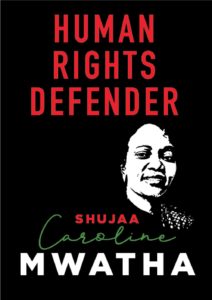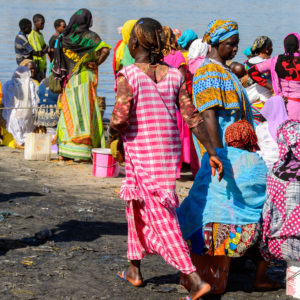Roxane Gay, author of the Bad Feminist known for her fight for more rights for historically marginalised groups said:
“The United States as we know it was founded on the principle of inalienable rights, this idea that some rights are so sacrosanct not even a government can take them away. Of course, this country’s founding fathers were only thinking of wealthy white men when they codified this principle, but still, it’s a nice idea, that there are some freedoms that cannot be taken away.”
This statement comes to mind when looking at the current trends which show us that the “rights of women are not inalienable. Our rights can be and are, with alarming regularity, stripped away.”
In late 2018, Kenya, the Kenya Film and Classification Board (KFCB) banned Marie Stopes from advertising on one of the popular radio stations – Classic 100. By the time of the ban, Marie Stopes had had a couple of weeks of conversations every morning on access to reproductive health services at their clinics. The talks moderated by radio hosts addressed the taboo that is abortion.
It was a first and brave one of Marie Stopes. Talk that is usually behind closed doors, in crevices, hidden form the light was now on radio. It was refreshing for some since mainstream media largely is silent on these topics, shocking for others while most people were appalled learning the reality and depth of the situation Kenya women and girls face.
How? How dare they come out openly talk about the services they offer on radio especially on national radio when people are driving to work? was the front used by those against breaking this taboo topic.
Up to that point, I would say we had assumed we have the right to information as per the Kenyan Constitution 2010. Abortion in Kenya is only allowed legally when a woman’s life or health is in danger and pro-rights groups continue to push to save more women from dying due to unsafe abortions. Abortion is not permitted unless, “in the opinion of a trained health professional, there is need for emergency treatment, or the life or health of the mother is in danger, or if permitted by any other written law.”
About half a million unsafe abortions occurred in Kenya in 2012 according to research by Guttmacher Institute. Government’s own data shows over 400,000 abortions are carried out annually and many do not survive these back street abortions at the hands of unskilled quack doctors.
From the Film Board, the Kenya Medical Practitioners and Dentist Board followed suit but not on their own. A petition by Citizen Go, a conservative group who seek to roll back rights that women have already gained and deny those we are tirelessly seeking, hiding behind claims of morality, called for an end to Marie Stopes offering reproductive services to Kenyan women.
The man that has become the self-appointed moral police of Kenya – CEO of KFCB Ezekiel Mutua spearheaded the ban.
No more abortion adverts by @MarieStopesKe and no offering of abortion services in all their facilities in Kenya, rules the Medical Practitioners and Dentists Board.#MarieStopesAbortionsBan pic.twitter.com/b1mmB8iHR0
— Dr. Ezekiel Mutua, MBS (@EzekielMutua) November 16, 2018
Just like that, one of the largest service providers of comprehensive reproductive health care was banned from offering reproductive health services. Most of our government facilities do not have adequate staffing, often there’s lack medical equipment and supplies and sometimes they have biased staff. The Marie Stopes clinics were among the affordable, available ones for women to access such services.
In face of this ban that further endangered women, rights advocates and progressive Kenyans came together. From open letters Cabinet Secretary of Health Sicily Kariuki on the unconstitutionality of ban to trending hashtag like #DearCSSicilyKariuki #MarieStopesAbortionsBan
#DearCSSicilyKariuki
This ban opens the floodgates of quacks,is this the picture you want to see? pic.twitter.com/DKRKBJZJGe— Janet Machuka (@janetmachuka_) December 20, 2018
If men could get pregnant, #MarieStopesAbortionsBan would not be a thing – it would be as legal as breathing air. And painless birth would have been discovered a long time ago.
But because it is women's bodies that go through all this…
— Dr. C (@chao_mbogho) November 17, 2018
Abortion is dangerous because it allows a woman to choose herself above everyone and everything else. To prioritize herself. To declare herself wholly worthy without reference to anything external. #MarieStopesAbortionsBan
— #WeAre52pc (@marilynkamuru) November 19, 2018
The uterus is private property. There are no externalities to the public what happens there. This is patriarchal christian fundamentalist bigotry and misogyny hiding behind public interest rhetoric. #MarieStopesAbortionBan https://t.co/OyzGHgcZ4X
— David Ndii (@DavidNdii) November 17, 2018
Shortly before Christmas, the government gave in to pressure and lifted the The ban. Despite the ban being lifted, Kenya still lacks policy, standards and guidelines on reduction of maternal mortality. Reproductive health rights still continue to be secondary rights, these rights continue to be at the periphery. Women and girl’s health continues to be a non-priority in as much as health is listed as part of the big four agenda for government of Kenya. We know that an abortion can be needed by any woman of any reproductive age and without guidelines even the exceptions that laws permit cannot be easily procured.

Weekly, we are treated to stories of women having lost their lives due to unsafe abortion, or quack service providers thriving in dingy dirty locations. We hear the constant uproars, the constant shaming of those in need to access healthcare and in death we just offer prayers and then sit back and wait for the next death of a woman.
The recent death of human rights defender Caroline Mwatha captured the nation and is a painful awakening for us to fight for rights trampled upon for far too long. It should not have to be death sentence. Media continues to frame abortion related deaths with murder to shame the women victims at the centre of the narrative instead of questioning society, health services, the laws that allow this crisis to go on.
In the East Africa region, women rights and progressive policies are being regressed day by day and the rise of fascism in Europe and America has emboldened many to move in to restrict women’s rights. As anti-rights groups come to target rights of African women, they maintain this line of attack that somehow women’s rights are anti-African while they work quietly with religious fundamentalists from across the globe. The fronting of religion when it comes to public policy is not lost on us even when our constitutions screams-secular state.
The dwindling of democratic space across the globe pauses real danger to women and girls in a unique way.
In Uganda too, the standards and guideline on maternal health and safe abortion were withdrawn about three years ago and over a dozen women that die daily due pregnancy related complications. In Tanzania, the closing of the civic space has had the worst impact on women and girls. The president has personally been involved in attacks on women’s reproductive health services like contraception. Young girls are denied education for being pregnant. Activists continue to be questioned, harassed and are not allowed to fight for rights of young teenage girls to go back to school.
Bodily autonomy and integrity continues to be a luxury for women and girls in East Africa. It is dependent on the class and the strata you come from in the society. Let’s face it, the rich political elite that fan the flames against women’s rights can access an abortion, contraception and other restricted services if they or their relatives are in need of one. We are still far from an environment- both legal and social that is conducive for girls and women to make their choices and access their full health especially women and girls from the poorest backgrounds.

Governments continue to use reproductive health to hold women hostage, from attaining their full health and living their lives to the fullest. These rights being stripped away are part of the push back in a society that still treats its girls and women unequal while spreading the fear of a liberated woman who is in charge of her body and life.
Like Audre Lorde rightly warns, our silences will not protect us. “Your silence will not protect you.” Let’s continue the fight against this regression. bell hooks, renown author and social activist says in Feminism is for Everybody, “as we seek to rekindle the flames of mass based feminist movement, reproductive rights will remain a central feminist agenda. If women don’t have the right to choose what happens to our bodies, we risk relinquishing rights in all other areas.”
Women’s rights are human rights and most of what we have achieved stands to be erased if we cannot successfully secure women’s rights to their bodies and end the death of many women and girls who are at the intersection of all systems of oppression in our society.
Mageda Esolyo is a Kenyan psychologist, feminist, digital media enthusiast and advocate for girls and women’s rights in Africa. She believes “we are more alike than we are different”. She practices yoga during her free time.

Woow! This is one educative piece of writing. You touched the situation of reproductive health in East Africa as you reflected it to your own country’s current state. Women are being denied one of their most fundamental right and it is upon us all to fight alongside them(women) in this fight for their bodily freedom! I STAND WITH WOMEN on this.
Thank you Mageda for sharing your piece.
Thanks @Devine for engaging with the article. Women and girls in all their diversity still struggle to access fundamental sexual and reporductive healthcare services till date.